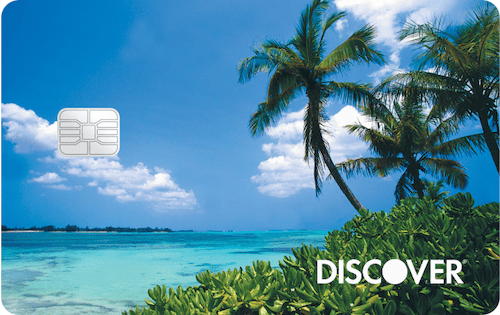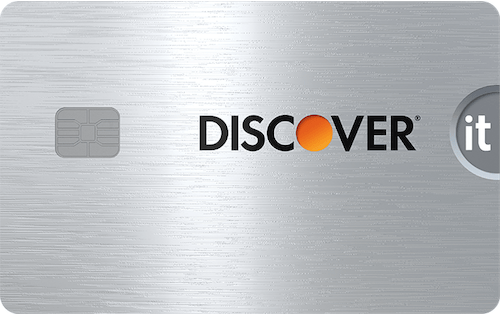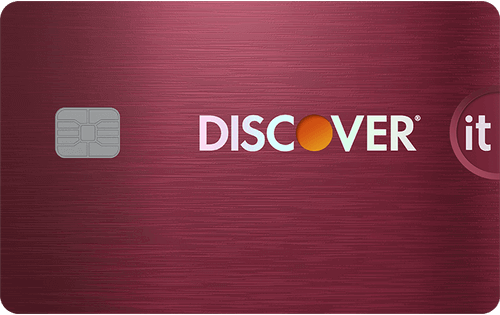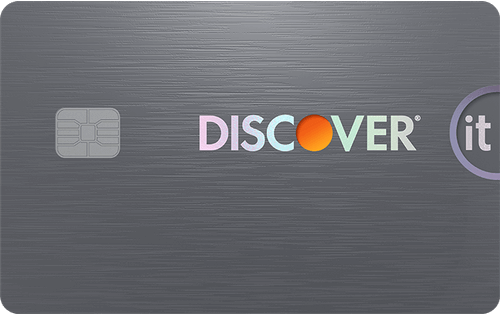Adam McCann, Financial Writer
@adam_mcan
It is better to get a Visa card than a Discover card in most cases because Visa cards offer more widespread acceptance and more supplemental benefits. In addition, there are a lot more Visa cards to choose from than Discover cards, since Visa lets many banks and credit unions issue cards on its network. Unlike Visa, Discover is a credit card issuer in addition to being a network, and the vast majority of cards on Discover’s network are issued by Discover itself.
There are still plenty of good Discover credit card offers, though. Discover is known for offering $0 annual fees and $0 foreign transaction fees, along with generous rewards. Depending on your situation, you may find that a Discover card ends up being better for you than a Visa card. Below, you can see which network is better in various categories.
Discover vs. Visa: Which Is Better?
| Category | Visa | Discover | Winner |
| Acceptance in the U.S. | 99% of U.S. merchants | 99% of U.S. merchants | both |
| Cards in circulation | 312.2 million | 61 million | Visa |
| Foreign acceptance | 200+ countries and territories | 200+ countries and territories | Tie |
| Fees | 0% to 3% and annual fees ranging from $0 to hundreds of dollars | 0% foreign transaction fee & annual fee | Discover |
| Supplemental benefits | extended warranties, price protection, purchase protection, rental car insurance and travel insurance | Nil | Visa |
| Card choices | Bank of America, Barclays, Capital One, Chase, Citi, PNC, Synchrony, U.S. Bank, USAA and Wells Fargo | All cards on Discover network | Tie |
Acceptance in the U.S.
Both Visa and Discover are accepted by 99% of U.S. merchants (according to the February 2025 issue of the Nilson Report).
Cards in circulation
Visa beats Discover by a lot. There are 312.2 million Visa cards in circulation in the U.S., compared to Discover’s 61 million.
Foreign acceptance
Visa is better than Discover. Visa is accepted at virtually every merchant in the world who takes credit cards, in 200+ countries and territories. Discover is accepted in 200+ countries and territories, but many of those places only have a small number of merchants who will accept Discover.
Fees
Discover beats Visa in this category because every Discover credit card has a 0% foreign transaction fee and $0 annual fee. Visa cards generally have foreign transaction fees ranging from 0% to 3% and annual fees ranging from $0 to hundreds of dollars.
Supplemental benefits
Visa is much better than Discover. Depending on the card, Visa’s benefits include extended warranties, price protection, purchase protection, rental car insurance and travel insurance. Discover used to have most of these benefits, but they were discontinued.
Card choices
Discover Bank issues nearly all of the cards on the Discover network. In contrast, lots of different banks and credit unions issue Visa cards, including Bank of America, Barclays, Capital One, Chase, Citi, PNC, Synchrony, U.S. Bank, USAA and Wells Fargo.
Discover vs. Visa Credit Cards by Category
| Category | Visa | Discover | Winner |
| Cash back | Visa | ||
| Travel | Visa | ||
| 0% intro APR | Visa | ||
| Balance transfers | Visa | ||
| Bad credit | Discover | ||
| Students | Discover | ||
| Business | None | Visa |
You can learn more about the best Visa and Discover credit cards on WalletHub.

People also ask
Did we answer your question?
Important Disclosures
Ad Disclosure: Certain offers that appear on this site originate from paying advertisers. For full transparency, here is a list of our current advertisers.
Advertising impacts how and where offers appear on this site (including, for example, the order in which they appear and their prevalence). At WalletHub we try to present a wide array of offers, but our offers do not represent all financial services companies or products.
Advertising enables WalletHub to provide you proprietary tools, services, and content at no charge. Advertising does not impact WalletHub's editorial content including our best picks, reviews, ratings and opinions. Those are completely independent and not provided, commissioned, or endorsed by any company, as our editors follow a strict editorial policy.



